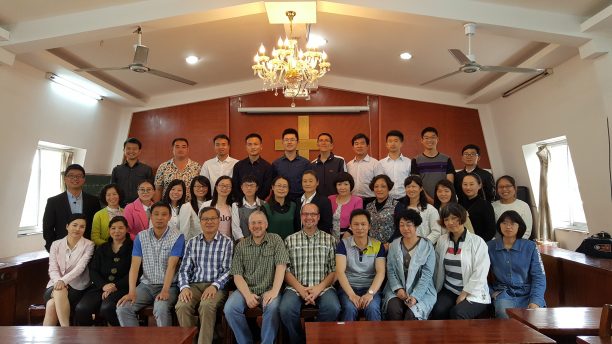
I just returned from my third trip to our partner church in China.
We are now reaping the tenfold fruit of a seven year relationship and it is AMAZING!
However, I can remember a time not so long ago when I was feeling completely frustrated about our church’s missions program.
When I came to this church in 1999, the church was broken, discouraged, and declining. We had an average attendance of about 50 on a Sunday and we determined to do whatever it would take to become a vibrant, healthy, disciple-making church.
We adopted the Purpose Driven strategy and over the next 5 years we slowly, but systematically changed our church and we saw amazing results.
In 2004 we introduced our missions class and began churning out members ready to be mobilized to take the gospel to the whole world.
I’m passionate about missions because of two truths:
- The Great Commission is for every Christian, not just the “professionals.”
- One of the greatest ways to GROW your people is to SEND THEM!
But there was one small problem – HOW?
I desperately wanted to send my people out to the nations, but I had no idea how to do it.
As a member of the the world’s largest missionary sending denomination, I figured it would be a piece of cake, and yet I hit roadblock after roadblock. Finally, after talking with multiple denominational representatives, one told me, “Pastor, it’s best that your members don’t go out on the field, that would disrupt the work of our full-time missionaries. The best way you can help is to send your money not your members.”
I was so disheartened.
We began praying that God would open doors for us to send our people out into our city, our country, and the whole world.
Our first efforts began by partnering with para-church organizations that made their living by coordinating short-term missions geared for ordinary members. This was a good initiation into the world of international missions, but there were several drawbacks for us.
- It was expensive. The additional fees, etc. caused the overall cost per person to be limiting for my blue collar crowd.
- The trips tended to focus on “one and done” projects such as VBS, dig a well, hand out shoes/clothes, hold events, etc. This made the team feel as though we had accomplished something, but lacked a solid long-term strategy.
- Third, each trip seemed to be creating an unhealthy co-dependency. As we were leaving, we would usually be inundated with pleas for our return. “When will you come back? Please, we need you.” I couldn’t help but wonder if we were really helping them or hurting them.
I began to ask God to show us a better way to mobilize our people and fulfill the Great Commission.
In 2008 God answered that prayer.
It all started when a member introduced me to a Chinese gentleman who had become a Christian in his church in Anqing, China. He shared the incredible story of this church that literally rose from the ashes following the cultural revolution and is now a thriving evangelical congregation. He invited me to go with him to China and check it out and so I did!
I met with the pastor and we began talking about ways that our churches could forge a long term partnership that would fulfill the vision for each of our churches.
Seven years later, we now have 5 established church partnerships: 4 international and 1 in the U.S. and 2 more international partnerships in the works!
I am convinced that much of what western churches are doing missionally could be so much more effective if they would switch to a partnership missions model. So what’s different about partnership mission?
3 PRINCIPLES OF PARTNERSHIP MISSIONS
- We send members not money. Sending money to impoverished regions doesn’t help alleviate poverty any more than giving your broke brother-in-law money fixes his real problem. Money often makes things worse, not better. If you are a church leader I highly recommend that you DO NOT engage missionally until you’ve read the book, When Helping Hurts: How to Alleviate Poverty Without Hurting the Poor . . . and Yourself
- We send servants not solutions. Too often outsiders think they know what a town needs only to discover they were dead wrong. Only the pastor in China knows what the Chinese people need the most. Therefore, we go to serve the local church under their leadership.
- We implement change through the church. We only partner with churches. On each of our trips we work to make the local church the hero. Long after we’ve gone home the local church in that town or village will still be there. That community needs to know that the local church is the place where they can find hope and healing. Hope doesn’t fly in on a plane or leave when the team goes. The church is the hope of the world.
These partnerships take time, but the long term benefits are well worth the effort. There’s some fruit you simply cannot see unless you’re in it for the long haul.
What are your thoughts?

No Comments